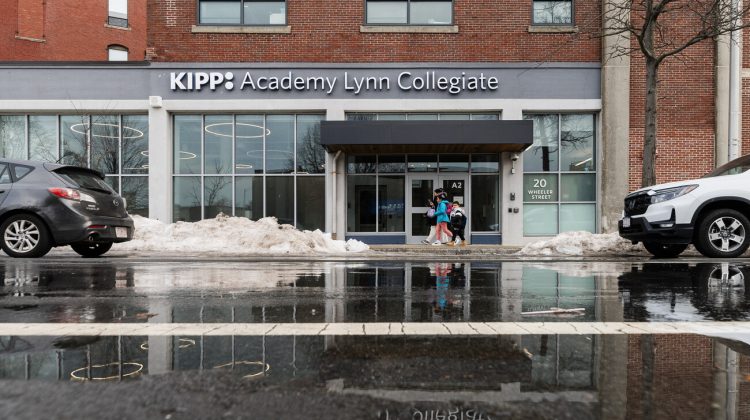LYNN — The Commonwealth of Massachusetts Board of Elementary and Secondary Education (BESE) held a meeting Tuesday morning in which they voted against the expansion of KIPP Academy six to four.
Sen. Brendan Crighton, Rep. Dan Cahill, Rep. Jenny Armini, Rep. Sean Reid, President of the American Federation of Teachers Jessica Tang, and Mayor Jared C. Nicholson all spoke during the BESE meeting. They stood in unison against the expansion of KIPP.
All speakers stressed that with the current financial state of Lynn and KIPP not meeting certain requirements like the standard for the three-year threshold for proficiency, KIPP should not be allowed to expand.
They also spoke on how COVID-19 affected the Lynn Public Schools district with Reed saying, “We’re here because of the pandemic. That’s why our test scores fell. And we’ve already proven, with the efforts of our superintendent, our mayor, and our school committee, that we can improve,” Reid said. “Cities like Lynn are very fiscally uncertain right now with the federal government, title funding, everything like that…This is a turbulent time, and we can’t take any more turbulence.”
Nikki Barnes, executive director of KIPP Massachusetts represented the school during the meeting.
“I’m speaking today on behalf of 1,500 current students and families that we have who also experienced COVID, and the 450 we would be honored to add to our community. I am grateful for this opportunity to address you ahead of your vote on our expansion,” Barnes said. “Last month I shared key data points: KIPP Academy Lynn’s 98% student retention rate, our 87% college attendance rate compared to 39% locally and 63% statewide, and our growing population of multilingual learners (MLL), including 39% of our new students who are MLLs.”
Barnes explained that the MCAS scores at KIPP demonstrated how students are progressing academically through grades K-12 and that 10th graders are consistently outperforming the statewide averages.
“We also don’t just see kids as dollar signs…Much of the opposition to our proposal has been based on the financial impact on the district, but most people forget to mention the generous state reimbursement provided to the districts and the slow phase-in of our expansion. If KIPP Lynn enrolled all 450 students in one year, the district would receive $17 million in reimbursement over a three-year period.”
In the end, the board voted against the expansion of KIPP Academy.
Board members Mary Ann Stewart, Ioannis Asikis, Chair Catherine Craven, Secretary Dr. Patrick Tutwiler, Dr. Ericka Fisher and Dálida Rocha voted no for the expansion.
Board members Michael Moriarity, Vice-Chair Matt Hills, Dr. Martin West, and Farzana Mohamed voted yes.
Crighton released a statement after the vote saying that he was proud to stand with the mayor, superintendent, the Lynn Teachers Union, administrators, local officials, students, and his legislative colleagues in opposition to a charter expansion in Lynn that would result in our public schools losing an additional $8 million a year.
In a statement after the vote against KIPP’s expansion Nicholson said, “Thank you to the Board of Elementary and Secondary Education for their thoughtful decision, and to the state delegation, City Council, School Committee, LPS team, Lynn Teachers Union, students, parents and residents who participated in the process with their comments and support. The City of Lynn and Lynn Public Schools remain steadfast in our commitment to foster continued growth and success in our schools and look forward to working together to further strengthen our public education system to ensure every student has access to the opportunities and resources they need to thrive.”
In regards to the vote against the expansion Superintendent Evonne Alvarez said, “We are relieved that board’s vote maintains existing funding for Lynn Public Schools, which will allow us continue to meet the needs of our diverse student population. Had the proposal been adopted, not only would it have negatively impacted plans for initiatives such as a new STEAM school, additional AP courses and expanded Early College program, it also could have resulted in a reduction in staff. We look forward to advancing our work to move our district forward.”
Attempts to reach Executive Director of KIPP Massachusetts Nikki Barnes were unsuccessful.

